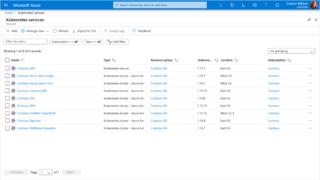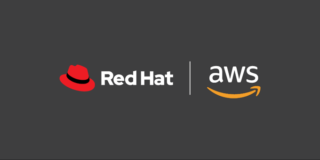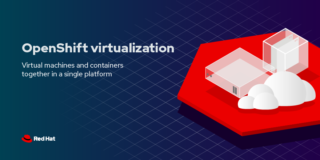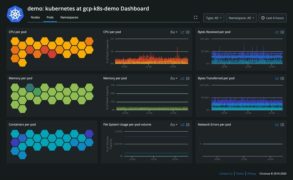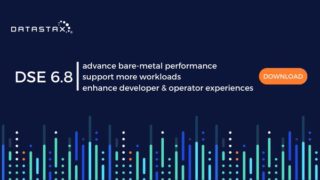Topic: kubernetes
Microsoft unveils Azure Arc enabled Kubernetes preview
Microsoft is giving its Azure users the ability to connect and configure to any Kubernetes cluster. The company announced a preview of Azure Arc enabled Kubernetes, which works across customer data centers, edge locations and multi-cloud. Azure Arc is the company’s solution for extending Azure services and management to any infrastructure. “With Azure Arc, customers … continue reading
ITOps Times Open-Source Project of the Week: cdk8s
Earlier this week, Amazon announced a new open-source development framework that enables developers to define Kubernetes applications using familiar programming languages. Cloud Development Kit for Kubernetes (cdk8s) allows IT professionals to define Kubernetes applications using familiar languages like Python and JavaScript. According to Amazon, applications that are running on Kubernetes are comprised of resources that … continue reading
Red Hat and AWS unveil Amazon Red Hat OpenShift
Red Hat and AWS are teaming up to deliver a jointly managed and jointly supported enterprise Kubernetes service on AWS. The companies announced Amazon Red Hat OpenShift, a fully managed service designed for IT organizations building and deploying apps in AWS on Red Hat’s enterprise Kubernetes platform. “As we move deeper into the era of … continue reading
ITOps Times news digest: Portshift Kubernetes API Server Protection, Nutanix automations, and DataKinetics and IBM expand partnership
Portshift has announced the release of Kubernetes API Server Protection. The solution is designed to analyze RBAC permissions in Kubernetes clusters and then categorize them by risk level. Kubernetes API Server Protection also makes existing pod permissions more strict and removes unused performissions. In addition, the company announced that it received Red Hat Container Certification, … continue reading
Managing Day 2 Kubernetes
Kubernetes has matured to the point where users need to not only consider how to get Kubernetes clusters spun up and deployed, but how to maintain and scale them for the long term. Kubernetes was the first project to graduate from the Cloud Native Computing Foundation (CNCF), and according to its Project Journey Report, which … continue reading
Red Hat announces new solutions to optimize, scale and protect IT operations
Red Hat introduced a number of new updates and offerings targeted at IT operations and shifting global dynamics. The company announced OpenShift virtualization, Red Hat OpenShift 4.4, Red Hat Advanced Cluster Management for Kubernetes as well as updates to Red Hat Insights and its Ansible Automation Platform. “Perhaps more than ever before, the unique needs … continue reading
Red Hat releases new container management solution
Red Hat is unveiling a new container management solution as part of its virtual Red Hat Summit happening this week. The Red Hat Advanced Cluster Management solution for Kubernetes aims to extend and scale Red Hat OpenShift and accelerate digital transformation initiatives. According to the company, many modern application development teams are still using outdated … continue reading
Circonus introduces Kubernetes monitoring solution in Spring 2020 release
Machine data intelligence platform provider Circonus is releasing a new Kubernetes monitoring solution to give IT teams health-based alert capabilities and ability to auto-scale. The monitoring solution is part of the company’s Spring 2020 release, which also features improvements to cloud monitoring, GCP marketplace availability, performance enhancements, and integration with Terraform. The Kubernetes monitoring solution … continue reading
StorageOS V2.0 launched to run stateful workloads with Kubernetes at scale
StorageOS announced V2.0 of its software-defined, persistent storage for Kubernetes. Now, by deploying a StorageOS container, enterprises can run stateful workloads with Kubernetes in production at scale. “Trends in the cloud-native market have shown that users want to run hyper-converged and/or multiple-cluster Kubernetes environments with the underlying storage to support cloud-native workflows and stateful applications,” … continue reading
ITOps Times news digest: Rancher 2.4, DataStax’s Apache Cassandra Kubernetes operator, and Morpheus Data 4.2
Rancher Labs is releasing the latest version of its Kubernetes management platform. Rancher 2.4 features scalability, management and security capabilities required to help Kubernetes scale to the edge. Key features include: Support for 2,000 clusters and 100,000 nodes Limited connectivity maintenance with K3s Zero downtime maintenance for RKE Enhanced security with CIS benchmark scanning In … continue reading
ITOps Times Open-Source Project of the Week: Kubei
Portshift has announced the release of Kubei, an open-source Kubernetes runtime vulnerabilities scanner tool. According to the company, while there are a lot of options already out there, not all scanners are the same and differ by the number of feeds they consume, updates they product and information they provide. ‘All tools, however, require some … continue reading

